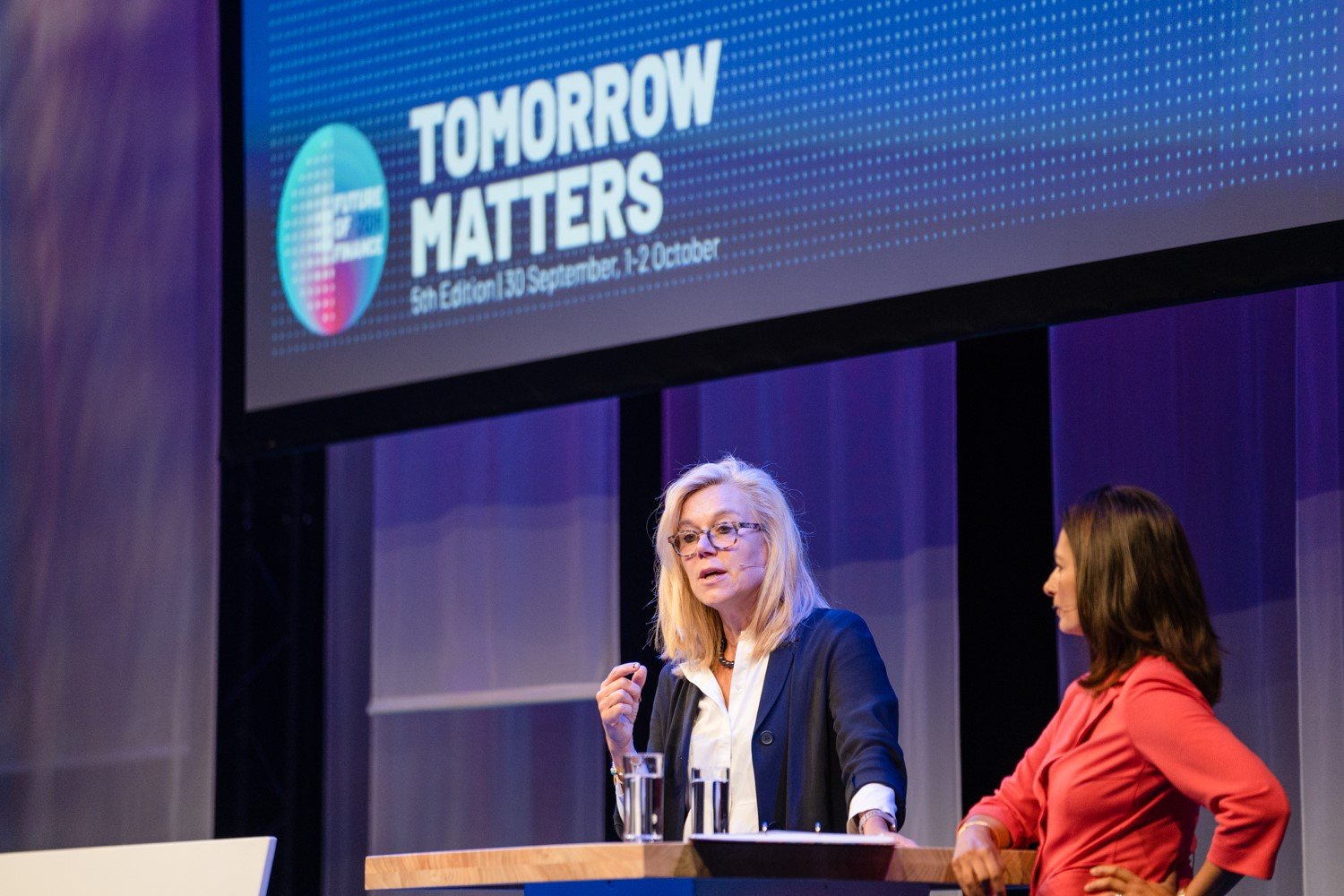

In this day and age, asks Minister Sigrid Kaag, why wouldn’t you invest in sustainable development?
In an invigorating Q&A session, Sigrid Kaag, Dutch Minister for Foreign Trade & Development Cooperation, discussed both her personal and professional commitment to engaging the private sector in achieving the Sustainable Development Goals among others to create jobs, enhance financial inclusion, and develop human capital in a sustainable way.
Asked why she felt it important to attend the Future of Finance conference, Sigrid Kaag said that on a personal level, she has a mission to act now for a fair and inclusive world tomorrow. While as a politician, the former senior UN worker recognizes the importance of the UN’s Social Development Goals (SDGs) for the world, and sees it as her mission to align all parties behind the SDGs: politicians, the public and private sectors, NGOs and citizens.
The public sector must encourage, empower - and enforce - the financial sector to invest in the SDGs, including in social infrastructure where feasible.
An event like FoF is important, Kaag believes, because the financial sector obviously has a key role to play in achieving the SDGs. The billions that need to be invested can’t come from public capital alone. Rather, the public sector must encourage, empower - and enforce - the financial sector to invest in the SDGs, including in social infrastructure where feasible.
The Dutch government, Kaag said, invests in small and women-owned enterprises, sustainable agriculture, and climate finance initiatives. In all these areas, she sees FMO as a very important partner, running three key funds for the Dutch government: First, the Infrastructure Development Fund, where Kaag says FMO strategic investments can help towards the tipping point regarding SDG 17 (Partnerships for the goals).
MASSIF is a fund that provides local currency loans to financial FMO partners. “By taking more risks, we enable these banks to fund small and micro enterprises, helping them create jobs especially for young people and women. I want to see investment in women entrepreneurs and I’ll be asking FMO if we’re doing enough for women and girls.”
The third programme is the Access to Energy Fund, which Kaag sees as something of “a balancing act”, as sherealizes that sustainable energy sources are not sufficient to meet countries’ basic energy needs to sustain their economic growth.
Facts do matter
Asked how you combat the current negative voices on issues like trade and migration, Kaag was unequivocal. “Build the evidence and come with an alternative narrative. Facts do matter.” It’s also about giving the full picture. She gave the example of how the Netherlands invests some €650 million in overseas school education programmes. That sounds like a lot but is just a fraction of the Dutch national education budget. And that money will give children a fair chance in life. “But it needs to be relevant, high quality education, linked to the job market.”
When towards the end of the session, she was asked why private investors should invest in sustainability, Kaag said that actually the question should be turned around. “If you look at impact investing, benchmarking, etc, why in this day and age wouldn’t you invest in sustainable development, including in social infrastructure? Because the erosion of standards is a given if we don’t start thinking, acting and investing very differently. We’re encouraging top Dutch companies to look at everything they do through the SDG lens. It’s good for business, good for profit, good for people and the world and, at the end of the day, makes their own business more sustainable. Shared wealth, shared security.”
